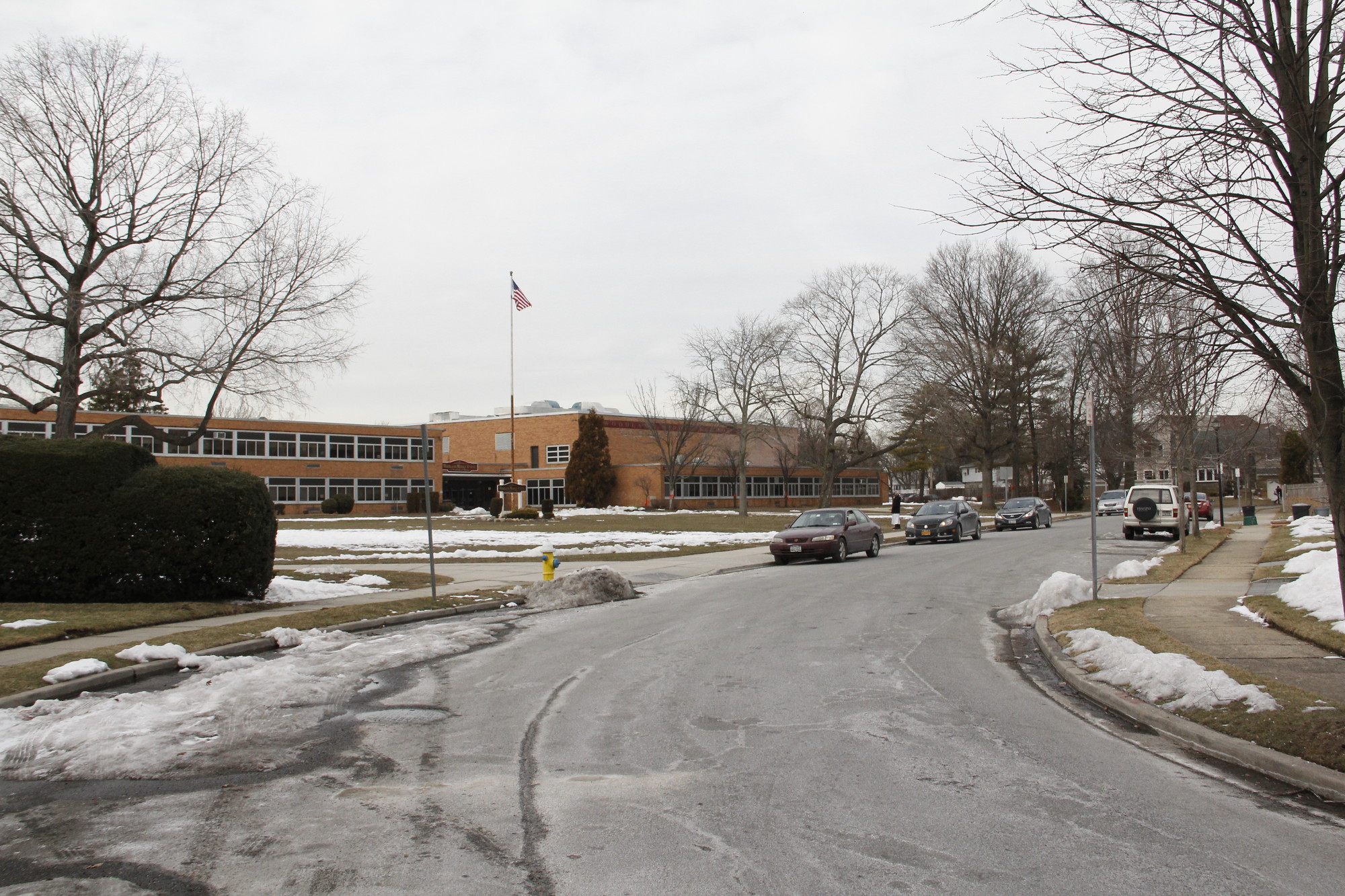Teachers’ suit heard by New York’s top court
Case stemming from 2007 Woodland demonstration involves First Amendment rights
A lawsuit filed by two former Woodland Middle School teachers against the East Meadow School District was argued before the New York State Court of Appeals, the state’s highest court, on Feb. 19. The suit stems from a 2007 demonstration over stalled contract negotiations by approximately 15 teachers, who, on a rainy day that March, picketed from their vehicles while parked on Wenwood Drive, a road commonly used by parents to drop their children off before school.
According to a case summary issued by the Court of Appeals, Richard Santer and Barbara Lucia were among the teachers parked legally on the two-way road, but the district filed disciplinary charges against them and four others, alleging that they intentionally created a health and safety risk and that their actions prevented children from being dropped off at curbside, forcing them to get out of vehicles in the middle of the street.
No school official asked the teachers to move their cars during the protest, according to court documents, and no child was injured.
A neutral arbitrator agreed with the district, and Santer and Lucia were fined $500 and $1,000, respectively. The pair filed suit in Nassau County Supreme Court to have the fines vacated, but the court denied their petitions.
Santer and Lucia then appealed the case to the state’s Appellate Division, arguing that they had a constitutional right to picket peacefully in a public area before the beginning of the school day. The appellate court sided with the teachers, overturning the Supreme Court’s decisions — Santer’s in December 2012 and Lucia’s last August.
In Santer’s appellate court ruling, the court wrote that it “must balance free-speech principles against the threat to effective government operation presented by that speech.” Though it decided that the arbitrator had a rational basis to fine the teachers, the court determined that the district “failed to meet its burden of demonstrating that Santer’s exercise of his First Amendment rights so threatened the school’s effective operation as to justify the imposition of discipline.”

 44.0°,
Mostly Cloudy
44.0°,
Mostly Cloudy 




